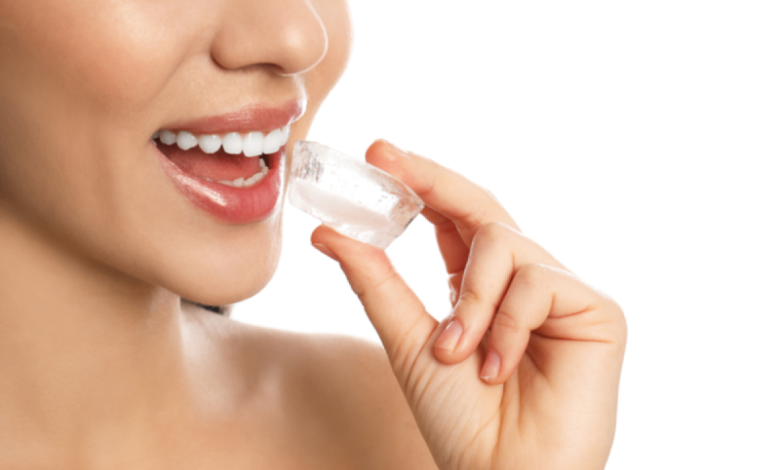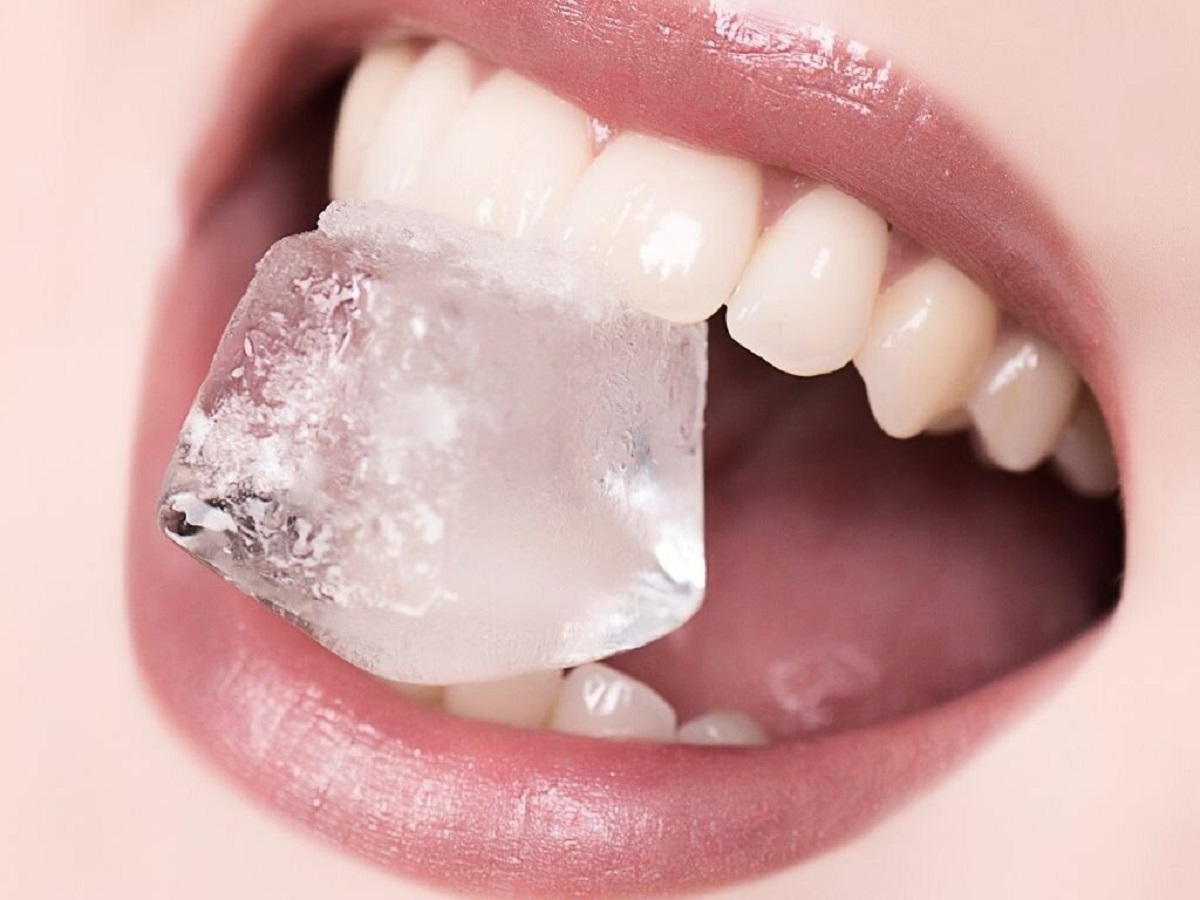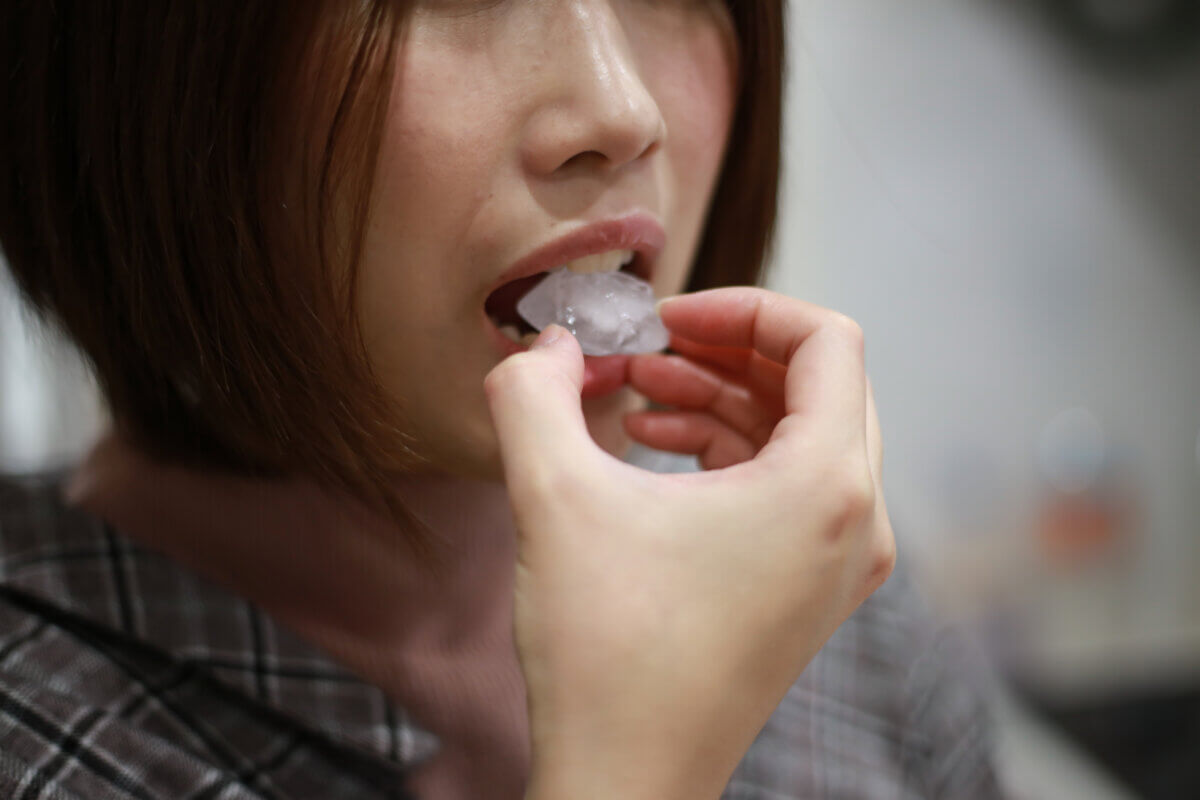Chewing Ice: From Dental Damage To Health Risks

Chewing Ice: Chewing ice, a seemingly harmless habit, falls under repetitive behaviors such as teeth grinding, thumb sucking, or lip biting.
Often a response to stress or anxiety, this behavior can lead to a range of health complications, particularly concerning oral health and underlying medical conditions. This essay explores the causes, effects, and potential solutions for this common yet often overlooked habit.
Chewing Ice: Causes Of Ice Chewing
Ice chewing, also known as pagophagia, may stem from psychological factors such as stress relief or sensory stimulation. However, in some cases, it can indicate underlying health issues:
Iron Deficiency Anemia: A prevalent cause of pagophagia, studies suggest that people with anemia often experience cravings for non-nutritive substances like ice. Chewing ice may provide temporary relief by increasing blood flow to the brain, reducing fatigue and headaches associated with anemia.
Stress And Anxiety: Repetitive behaviors like chewing ice can be a coping mechanism for stress and anxiety.
Nutritional Deficiencies: Deficiencies in zinc or magnesium may also contribute to cravings for ice.
Effects Of Ice Chewing
Chewing ice can lead to both immediate and long-term health concerns:
1. Dental Damage

Enamel Erosion: Ice is significantly harder than the enamel on teeth. Continuous chewing can erode this protective layer, leading to sensitivity and increased risk of cavities.
Chipped Or Cracked Teeth: The hardness of ice can cause structural damage to teeth, including chips and fractures, which may require costly dental repairs.
Jaw Strain: Persistent ice chewing exerts pressure on the jaw, potentially causing temporomandibular joint (TMJ) disorders.
2. Health Risks
Digestive Issues: Swallowing small shards of ice can irritate the gastrointestinal tract.
Anemia-Related Complications: In individuals with undiagnosed anemia, persistent ice chewing may mask other symptoms, delaying diagnosis and treatment.
Addressing The Habit

Breaking the cycle of ice chewing requires addressing its root causes:
1. Medical Treatment
Iron Supplements: If ice chewing is linked to iron deficiency anemia, treating the anemia typically reduces cravings.
Nutritional Adjustments: Ensuring a balanced diet rich in vitamins and minerals can help curb non-food cravings.
2. Behavioral Strategies
Stress Management: Practicing mindfulness, yoga, or therapy can address stress and anxiety-related triggers.
Substitutes: Chewing sugar-free gum or sipping cold water can provide similar sensations without damaging teeth.
3. Professional Help
Consulting a dentist or physician can help determine if ice chewing is a sign of a more significant health issue.
Conclusion
While chewing ice might appear harmless, it poses significant risks to dental and overall health. Recognizing the triggers and seeking appropriate treatment is essential for breaking this habit and safeguarding long-term well-being. By addressing the underlying causes, individuals can not only overcome the habit but also improve their quality of life.
Also Read:
The Do’s And Don’ts Of Teeth Whitening: Avoiding Side Effects And Maximizing Benefits
Sweets And Cavities: How Do Sweets Affect Your Teeth?
Iron Deficiency: Does Consuming More Iron Eliminate Fatigue?




